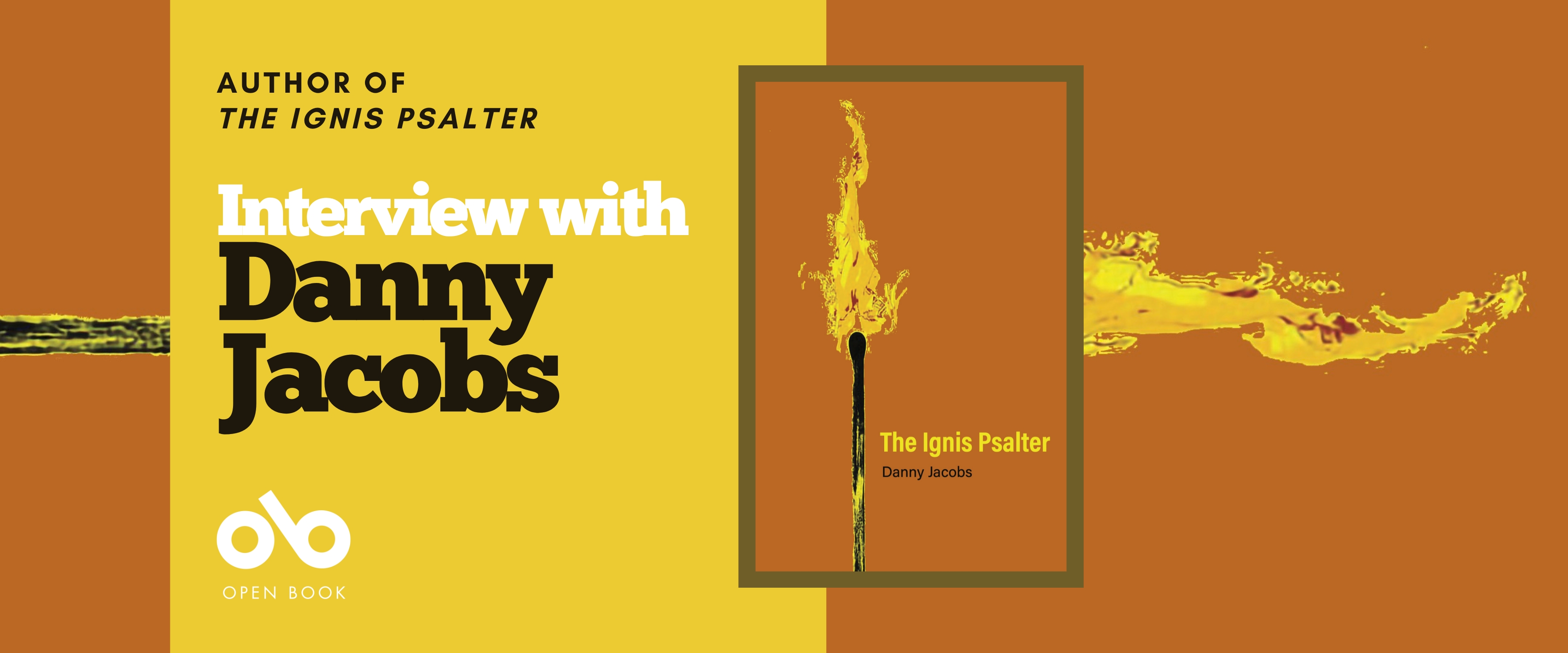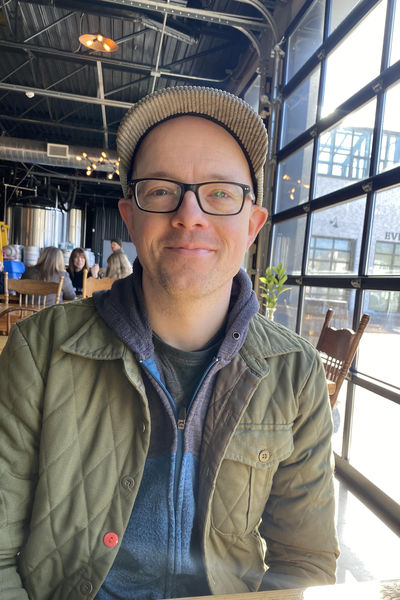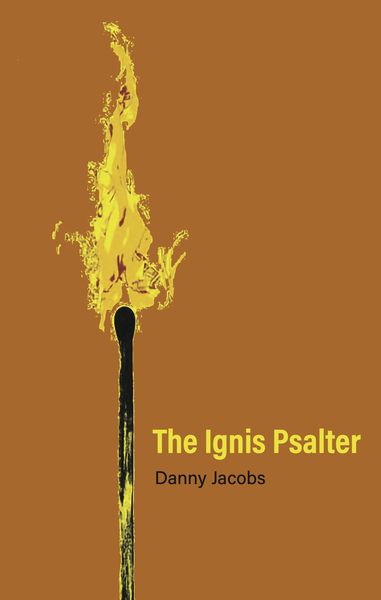Danny Jacob's Debut Novel is a Genre-Bending Gothic Fairy Tale
Poet and essayist Danny Jacobs is featured on Open Book today, and this time for his exciting debut novel, The Ignis Psalter (Gordon Hill Press/The Porcupine's Quill).
In a multigenerational tale about long kept secrets in rural New Brunswick from the early to late 20th century, we follow the timeline of The Village of Fire, otherwise know as Petitcodiac. In 1913, arsonist Cotton Steeves is scarred from his trade, and the strange patterns made there are obsessed over by his magician uncle as Cotton plots his next fire. Then we jump to 1993, where young Morton Lounsbury collects things, including the titular tome, The Ignis Psalter, a book of pyromaniacal spiritualism that seems link to the ghosts and legends of the town. With Steeves now an ageless recluse in the area, these two townsfolk will cross paths and reveal the truth about this strange place.
We have an interview with the author of this gothic fairy tale right here, where he talks about this unique and genre-bending debut novel!
Open Book:
Do you remember how your first started this novel or the very first bit of writing you did for it?
Danny Jacobs:
I wrote the first words for The Ignis Psalter five years ago in Damascus Coffee, a café in my hometown of Riverview, NB. My then wife and I had just dropped our baby daughter off to daycare, which was new and scary. The lines were a bit of surreal imagery (lots of that in the book), and they ended up being part of a nightmare that one of my main characters, Cotton Steeves, has in a Belgian trench during WWI. These lines were just stirrings of an idea, a breath, a distraction, and they weren’t reverse-engineered into the book proper until years later, after I had rewrote and rejiggered and reassembled and second-guessed and tore down and built up again. But those few lines are essentially the same as when I wrote them in Damascus.
OB:
How did you choose the setting of your novel? What connection, if any, did you have to the setting when you began writing?
DJ:
I always knew the novel would be set in Petitcodiac, New Brunswick. The village of Petitcodiac— where I worked as the librarian for over a decade—is its own character, my home-away-from-home, and a kind of imaginal keystone in my personal psychogeography. The triangle of Main, Kay St, and River Rd. The train tracks. The Baptist cemetery. The hollow oak along the river. I don’t work there anymore, and there are days when I intensely miss it.
OB:
Did you do any specific research for this novel? Tell us a bit about that process.
Your CanLit News
Subscribe to Open Book’s newsletter to get local book events, literary content, writing tips, and more in your inbox
DJ:
The best local history of Petitcodiac is a little blue book, long out of print, by a guy named John Burrows; at one point in his history, Burrows speculates about a possible generational arsonist in the village during the early 20th century. Those few sentences provided the spark for my book. But there are other histories, and I scoured them all. The Petitcodiac library had a lot of archival material, too, a haphazard collection of photos and documents brought in by residents, a few boxes that we tried to maintain in some kind of order. Those were useful for trying to imaginatively inhabit the town in the early 20th c. The staff at the provincial archives of NB were very helpful, too – when I contacted them about my weird project, they provided me with a detailed package of information about Soldier’s Memorial Hall—a Petitcodiac landmark, long gone, and an important setting in the book.
OB:
What was the strangest or most memorable moment or experience during the writing process for you?
DJ:
I remember reading an early draft of the novel over a few nights, after taking a hiatus, and realizing I had to rewrite vast swathes of it, as one must. This was eye- opening and vertigo-inducing, and not necessarily memorable in a happy way, but it was a great lesson in novel writing. I also knew, then, that I would probably never be entirely happy with the book—another important lesson. We chase receding horizons.
OB:
What if, anything, did you learn from writing this novel?
DJ:
I learned that novel writing is untangling Christmas lights, it’s doing a puzzle with pieces from different boxes, it’s jumpy footage of a man spinning plates. It’s thinking you see UFOs in the sky when it’s just satellites. It’s being stymied and quicksanded in doubt and wanting to do anything else. It’s me looking for metaphors and googling, just now, “things that are hard to build.”
____________________________________________
Danny Jacobs’ poems, reviews, and essays have been published in a variety of journals across Canada, including The Malahat Review, The Fiddlehead, Grain, The Walrus, Maisonneuve, PRISM International, Hazlitt, and Hamilton Arts & Letters, among others. Danny won PRISM International’s 2015 Creative Nonfiction Contest and The Malahat Review’s 2016 P. K. Page Founders’ Award. His first book, Songs That Remind Us of Factories (Nightwood, 2013), was shortlisted for the 2014 Acorn-Plantos Award for People’s Poetry.
His poetry chapbook, Loid, came out with Frog Hollow Press in 2016. His latest work, A Field Guide to Northeastern Bonfires, is a hybrid lyrical essay/prose poem sequence published in 2018 with Frog Hollow’s NB Chapbook Series. His debut book of prose, a collection of lyric essays entitled, Sourcebooks for Our Drawings: Essays and Remnants, is available from Gordon Hill Press. His debut novel, The Ignis Psalter, is forthcoming from The Porcupine's Quill.






